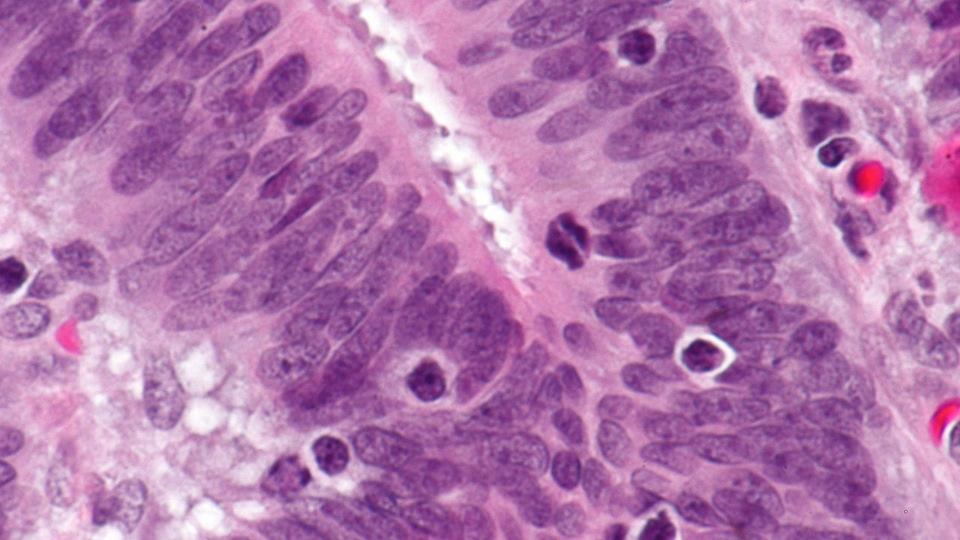Owkin and MSD join forces on AI-powered digital pathology

Micrograph showing tumour-infiltrating lymphocytes suggestive of microsatellite instability (MSI) in colorectal carcinoma
Pharma group MSD has joined forces with Owkin to develop artificial intelligence-powered digital pathology diagnostics that could be used to identify patients suitable for immunotherapies.
The focus of the alliance is the development of diagnostic digital pathology tools that can help pathologists and oncologists assess microsatellite instability-high (MSI-H) tumours, which indicate a defect in a cell’s ability to correct mistakes that occur when DNA is replicated.
These genetically disrupted tumours tend to respond well to PD-1/PD-L1 inhibitor therapies, like MSD’s Keytruda (pembrolizumab).
The aim is to come up with tools that can pre-screen patients with four tumour types for the MSI-H biomarker, namely endometrial, gastric, small intestinal, and biliary cancers. MSD – known as Merck & Co in North America – will be responsible for developing and commercialising the digital tools, initially in the EU.
According to the partners, MSI-H has become an important genomic biomarker with applications across several types of cancer and is now recommended by consensus guidelines internationally to help guide treatment choices.
While MSI-H is often encountered in some forms of cancer like colorectal, in others – including the four targeted by this collaboration – it tends to be lower ,so is not tested for routinely. The hope is that AI can be harnessed to identify patients quickly with MSI-H who could benefit from immunotherapies.
Owkin says it currently has the only MSI digital pathology diagnostic that is CE-marked for use in colorectal cancer. The test – MSIntuit CRC – applies machine learning to digitised pathology slides and has been recommended for use by the European Society for Medical Oncology (ESMO) in Europe and the College of American Pathologists (CAP) in the US.
Keytruda has been approved since 2020 as a first-line therapy for unresectable or metastatic colorectal cancer with MSI-H or mismatch repair deficient (dMMR) alterations, and earlier this year picked up an approval from the FDA for adult MSI-H and dMMR tumours, regardless of where in the body they originate.
“This strategic alliance with MSD is focused on improving the way patients are diagnosed and receive treatment, advancing our shared mission of supporting healthcare providers in their adoption of innovative digital diagnostics,” commented Meriem Sefta, Owkin’s chief diagnostics officer.
“It is clear that there is a need for AI diagnostics that can both ease bottlenecks and resource pressures, while also ramping up biomarker testing to match patients with optimal treatments,” she added.












